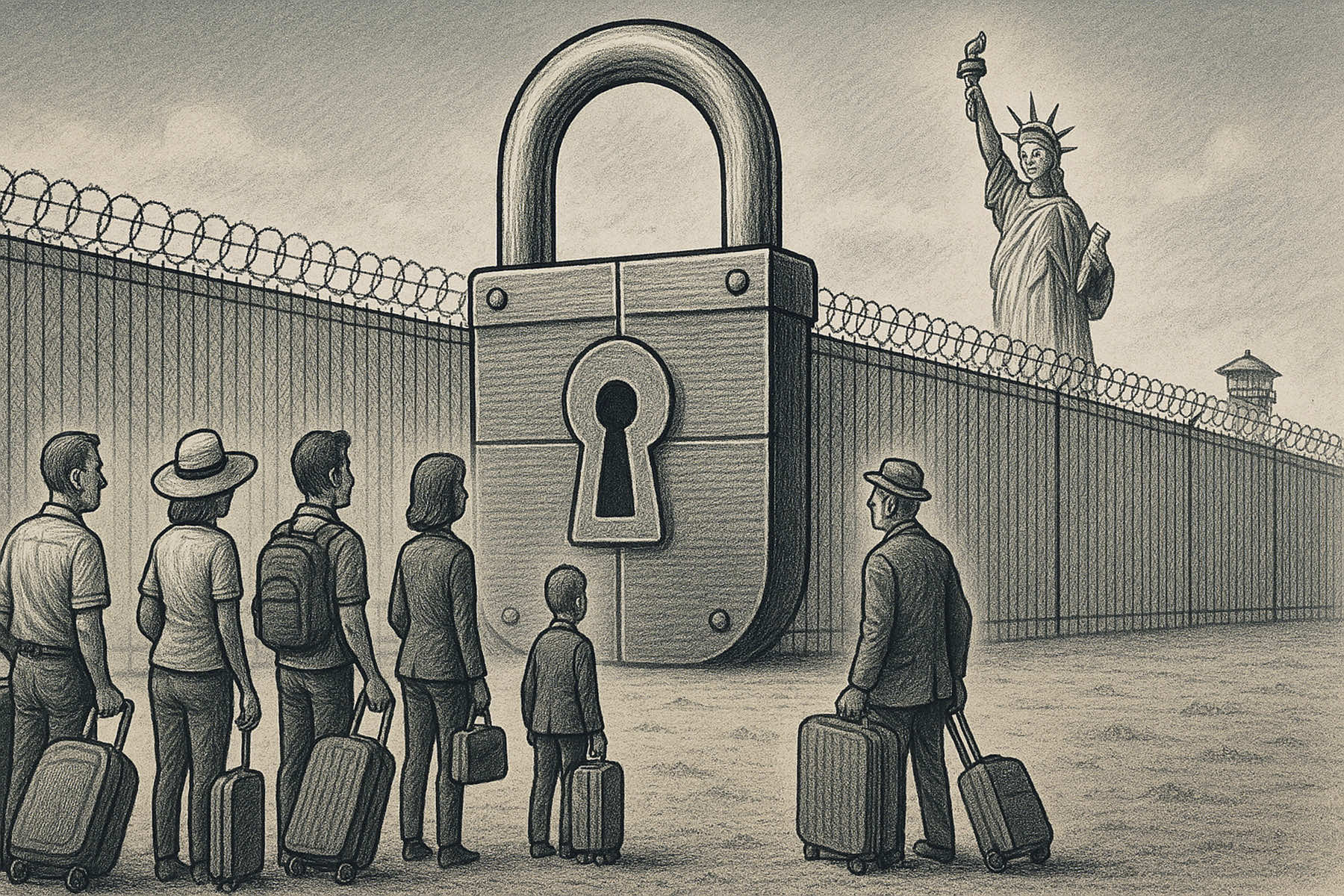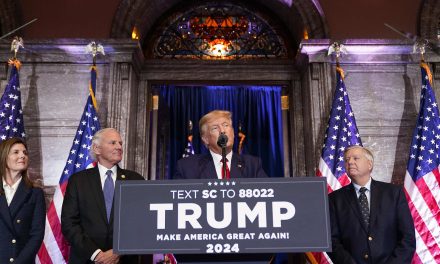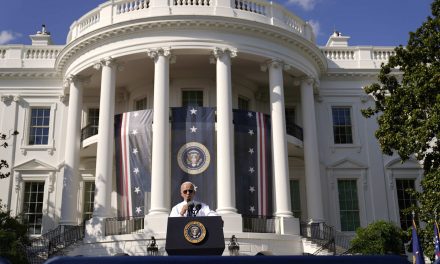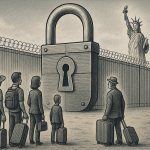
Olja Ivanic looked forward to welcoming some cousins from Sweden to her Denver home in June. Ivanic and the four travelers were planning to go hiking in Colorado and then visit Los Angeles and San Francisco.
But then President Donald Trump berated Ukrainian President Volodymyr Zelenskyy in a February meeting at the White House. Ivanic’s four relatives immediately canceled their scheduled trip and decided to vacation in Europe instead.
“The way (Trump) treated a democratic president that’s in a war was beyond comprehensible to them,” said Ivanic, who is the U.S. CEO of Austria-based health startup Longevity Labs.
The U.S. tourism industry expected 2025 to be another good year in terms of foreign travelers. The number of international visitors to the United States jumped in 2024, and some forecasts predicted arrivals from abroad this year would reach pre-COVID levels.
But three months into the year, international arrivals are plummeting. Angered by Trumps’ tariffs and rhetoric, and alarmed by reports of tourists being arrested at the border, some citizens of other countries are staying away from the U.S. and choosing to travel elsewhere.
The federal government’s National Travel and Tourism Office released preliminary figures in April showing visits to the U.S. from overseas fell 11.6% in March compared to the same month last year. The figures did not include arrivals from Canada or land crossings from Mexico. But air travel from Mexico dropped 23%.
For the January-March period, 7.1 million visitors entered the U.S. from overseas, 3.3% fewer than during the first three months of 2024.
The travel forecasting company Tourism Economics, which as recently as December anticipated the U.S. would have nearly 9% more international arrivals this year, revised its annual outlook in April to predict a 9.4% decline.
Tourism Economics expects some of the steepest declines will be from Canada, where Trump’s repeated suggestion that the country should become the 51st state and tariffs on close trading partners have angered residents. Canada was the largest source of visitors to the U.S. in 2024, with more than 20.2 million, according to U.S. government data.
Flight Centre Travel Group Canada, a travel booking site, said leisure bookings to U.S. destinations were down 40% in March compared to the same month a year ago. Air Canada has reduced its schedule of spring flights to Florida, Las Vegas and Arizona due to lack of demand.
The National Travel and Tourism Office gave a rosier forecast last month for international travel to the U.S. Based on 2024 travel patterns, the office said it expected arrivals to increase 6.5% to 77.1 million this year and surpass 2019 levels in 2026.
But Tourism Economics said the impact of the less favorable view of the U.S. from abroad could be severe enough that international visits will not surpass pre-pandemic levels until 2029.
“The survey data is all indicating a significant mix of cancellations and a massive drop in intent to travel,” Tourism Economics President Adam Sacks said.
Ian Urquhart, a professor emeritus at the University of Alberta in Edmonton, Canada, was supposed to go to Las Vegas for five days in June and see Coldplay in concert. He canceled the trip to protest Trump’s “incredibly disparaging tone” toward Canada even though it meant losing a $500 deposit on the vacation package.
His oldest daughter similarly nixed a planned May trip to Sedona, Arizona, while his brother-in-law decided not to go on his usual weeklong golf trip to Scottsdale, Arizona, according to Urquhart.
“None of us jumped for joy when we made those decisions, but it seemed to be one of the few ways we could signal how we felt about the bullying that has been directed towards Canada by your president,” Urquhart said.
For Pepa Cuevas and her husband, who live in Madrid, Trump’s election in November was a turning point. The couple had planned to spend a month skiing in Colorado over the winter holidays. They went to Japan instead.
“Trump’s victory left us, especially me, very shocked,” Cuevas said. “For the moment, we have lost the desire to return. I don’t know what will happen in the future, but for the moment we are still shocked, and it doesn’t look like this is going to be resolved.”
According to the Trump regime’s data, international arrivals from China were down nearly 1%. Leisure trips by Chinese citizens to places like Disneyland, Hawaii and New York are decreasing dramatically and likely will not pick up again until Trump has left office, said Wolfgang Georg Arlt, the CEO of the China Outbound Tourism Research Institute. He dubs it the “Trump Slump.”
That slump has financial consequences. Tourism Economics expects U.S. spending by international visitors to drop by $9 billion this year.
Marco Jahn is the president and CEO of New World Travel, a California company that works with overseas tour operators on vacation packages and activity planning. It arranges the hotels and rental cars for a family that wants to take a driving tour of U.S. national parks, for example.
Jahn said bookings have dropped between 20% and 50%, depending on the source market, over the last eight to 10 weeks. He notes particular declines from Scandinavia, where Trump’s repeated threat to take control of Greenland, a self-governing territory of NATO ally Denmark, has antagonized citizens.
“The U.S. is not perceived as a welcoming destination,” Jahn said.
For millions around the world, America no longer feels like a place they are welcome — or wanted. Trump’s policies have not only eroded the country’s image, but have turned the U.S. into something more unsettling: a nation that shuts its doors while daring the world to knock harder.
From Berlin to Buenos Aires, the message is being received. This is not just a tourism slump. It is a systemic rejection, a reputational implosion with no quick recovery in sight. The Trump Slump is proving less a dip than a collapse, a prolonged detachment of the world’s goodwill from a country once defined by its openness.
The numbers show it clearly: double-digit drops in travel, evaporated demand across continents, and billions in vanished spending that will not return. But the damage goes beyond data. Where once stood the Statue of Liberty, now travelers see a locked gate.
International families are not just choosing other destinations. They are teaching their children that the U.S. is no longer safe, no longer friendly, no longer a place to dream. Travel agents in Scandinavia, Asia, and South America now routinely advise against U.S. holidays. Tour operators report rising demand for European cities that feel “less tense.” It is no longer just a boycott. It is a reevaluation.
The economic consequences are already staggering. Airlines, hotels, guides, car rental firms and national parks, a trillion-dollar ecosystem, are watching international revenues vanish. Once lost, these are not easily rebuilt. A family that books Japan over Yosemite this year may not return next year. A canceled honeymoon in New York becomes a lifetime reroute to Paris. Trust fades faster than it can be earned, and no amount of slogans can summon it back.
Trump’s rhetoric — hostile, erratic, and nationalistic — has turned tourism from a point of pride into a geopolitical flashpoint. His constant insults toward allies, threats of annexation, and weaponized visa delays have redefined the border as something closer to a wall than a gateway.
Even as the regime declares “America is open for business,” fewer and fewer are buying it — literally. And what comes after? If the U.S. ever builds a new generation of things to sell — clean energy technology, modern cars, films, or medical research — who will line up to buy them?
When the world spends a decade learning to live without American travel, will it come back? The Trump Slump is not just a downturn — it is a warning flare. The lights are still on in America, but the world is not knocking anymore.
Beyond, a revenue management platform for vacation rental owners, said Canadian searches for short-term rentals in the U.S. plunged 44% after February 1, when Trump first announced a since-paused 25% tariff on goods from Canada and Mexico. Florida, Texas and New York were among the hardest-hit markets, Beyond said.
American Ring Travel, a tour operator based in California, offers carbon-neutral bus tours of the U.S. that often attract eco-conscious travelers from Europe, said Richard Groesz, the company’s director of contracting. But bookings from Germany flattened starting in January after Elon Musk threw his support behind a far-right political party in that country’s federal election, Groesz said.
There are other issues impacting foreign visits. The U.S. has been the top destination by country for Japanese tourists for years, but data compiled by JTB Tourism Research & Consulting showed South Korea topped the U.S. in January.
The weak yen – not Trump – is likely the biggest factor dampening the attraction of the U.S., said Takaaki Mitamura, a spokesperson for Tokyo-based travel agent Veltra Corp. Travelers are picking destinations where the currency effect is not as big, like South Korea, Taiwan, Thailand, and Australia, he said.
Haruka Atomiya, a Tokyo resident, visits Los Angeles at least once a year. Last year, she brought her young children for the first time and did a lot of research to find affordable places to stay. The exchange rate made some hotels double or triple the price she paid in the past.
Atomiya, who went to college in Vermont, has always loved the diversity and the freedom in the U.S. She said she does not understand why Americans elected Trump, but does not plan to stop visiting unless she senses any physical danger.
“If America changes in a way that’s clearly visible, that’s a reality, too, and I will likely keep visiting,” she said. “What will happen to America after Trump intrigues me.”















